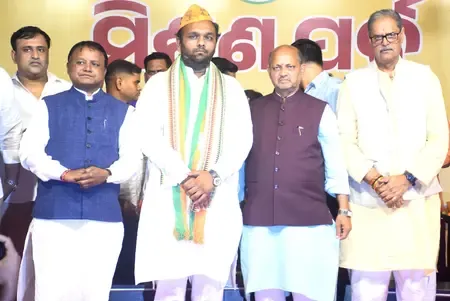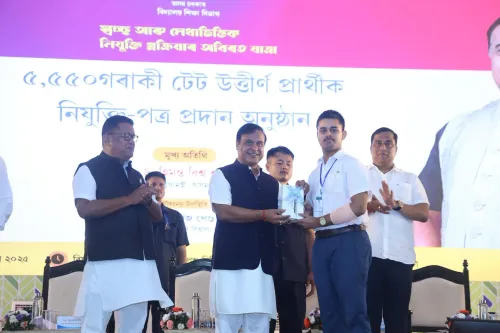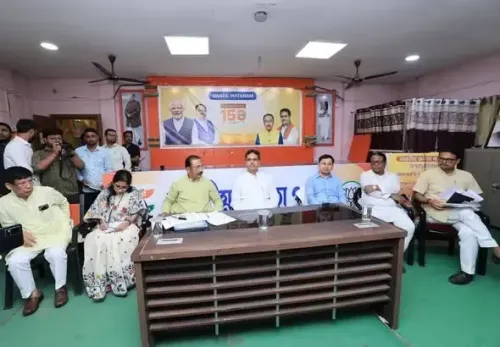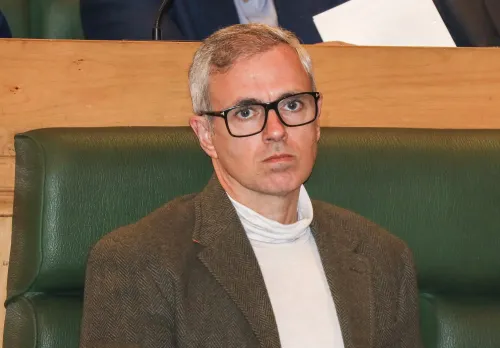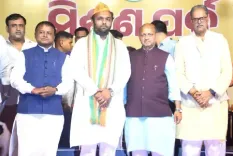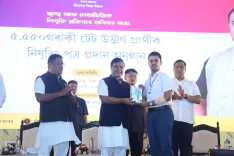Why Should Hindi Be the Language of Science, Justice, and Police?
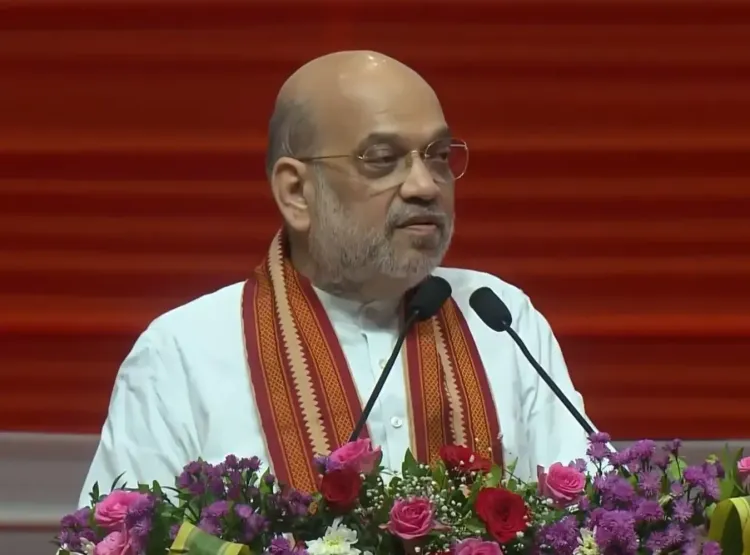
Synopsis
Key Takeaways
- Amit Shah advocates for Hindi as the language of science, technology, justice, and police.
- Encouragement for state Chief Ministers to communicate in their mother tongues.
- The establishment of the Bharatiya Bhasha Anubhag enhances the promotion of regional languages.
- Importance of learning in one's mother tongue to maintain cognitive abilities.
- Recognition of Hindi's role in fostering national unity and public discourse.
Gandhinagar, Sep 14 (NationPress) On Hindi Diwas, Union Home Minister Amit Shah emphasized that Hindi must transcend its role as merely a means of communication and official usage; it should serve as the foundation for technology, science, justice, and police administration.
During the Fifth All India Official Language Conference, HM Shah remarked, "When all tasks are conducted in Indian languages, it naturally fosters a connection with the populace."
He asserted that Hindi's application should extend beyond official contexts. "Hindi ought to become the language of science, technology, law, justice, and police."
The Home Minister called on Chief Ministers from every state to communicate with the Union Home Ministry in their native languages and assured that he would respond in kind.
He praised Prime Minister Narendra Modi for advocating the use of technology to advance regional languages.
"With the establishment of the Bharatiya Bhasha Anubhag (Indian Languages Section), the Department of Official Language has evolved into a comprehensive department," he explained.
HM Shah reiterated that Hindi is not a rival to other Indian languages but rather their ally, highlighting the Sarthi software for translation, which seamlessly integrates Hindi with other Indian languages by facilitating translations both to and from Hindi.
"The most notable example of harmony between Hindi and other languages is Gujarat. While Gujarati is the state's mother tongue, Gujarat exemplifies the coexistence and collective advancement of both Gujarati and Hindi," he stated.
He acknowledged scholars from Gujarat, such as Dayanand Saraswati, Mahatma Gandhi, and Sardar Patel, who embraced and promoted Hindi.
"These leaders foresaw the necessity of uniting Indian languages and advocating for Hindi across all states, significantly enhancing the nationwide reach of students from Gujarat," he added, noting that students in the state study both Gujarati and Hindi.
He emphasized how Hindi has linguistically unified the nation and played a crucial role in fostering public discourse and communication.
HM Shah referenced Shivaji Maharaj, who underscored three vital principles: 'Swaraj, Swadharm, and Swabhasha'. "These elements are intertwined with the nation’s self-respect. A nation cannot strive for independence without its own means of communication," he asserted.
He also encouraged parents to motivate their children to learn in their mother tongue, stating, "Children's learning ability decreases by 30% if they are taught in a foreign language."
He praised Sanskrit as the bedrock of Indian knowledge, crediting Hindi for disseminating this knowledge to every household.
Earlier, in a video message on X, HM Shah noted that the past decade, under PM Modi's guidance, has marked a renaissance for Indian languages and culture.
PM Modi has elevated the status of Indian languages by utilizing Hindi and other Indian languages at platforms like the United Nations, G-20 summit, and the Shanghai Cooperation Organisation, he highlighted.
In this 'Amrit Kaal' of independence, PM Modi has committed to the 'Panch Pran' (five pledges) to liberate the country from colonial remnants, wherein languages play a pivotal role. We should embrace Indian languages as our primary means of communication and interaction, he remarked.
Hindi, as the official language, celebrates 76 glorious years, and the Department of Official Language, having marked 50 years since its inception, has significantly advanced Hindi as the language of the masses and public consciousness, HM Shah concluded.

